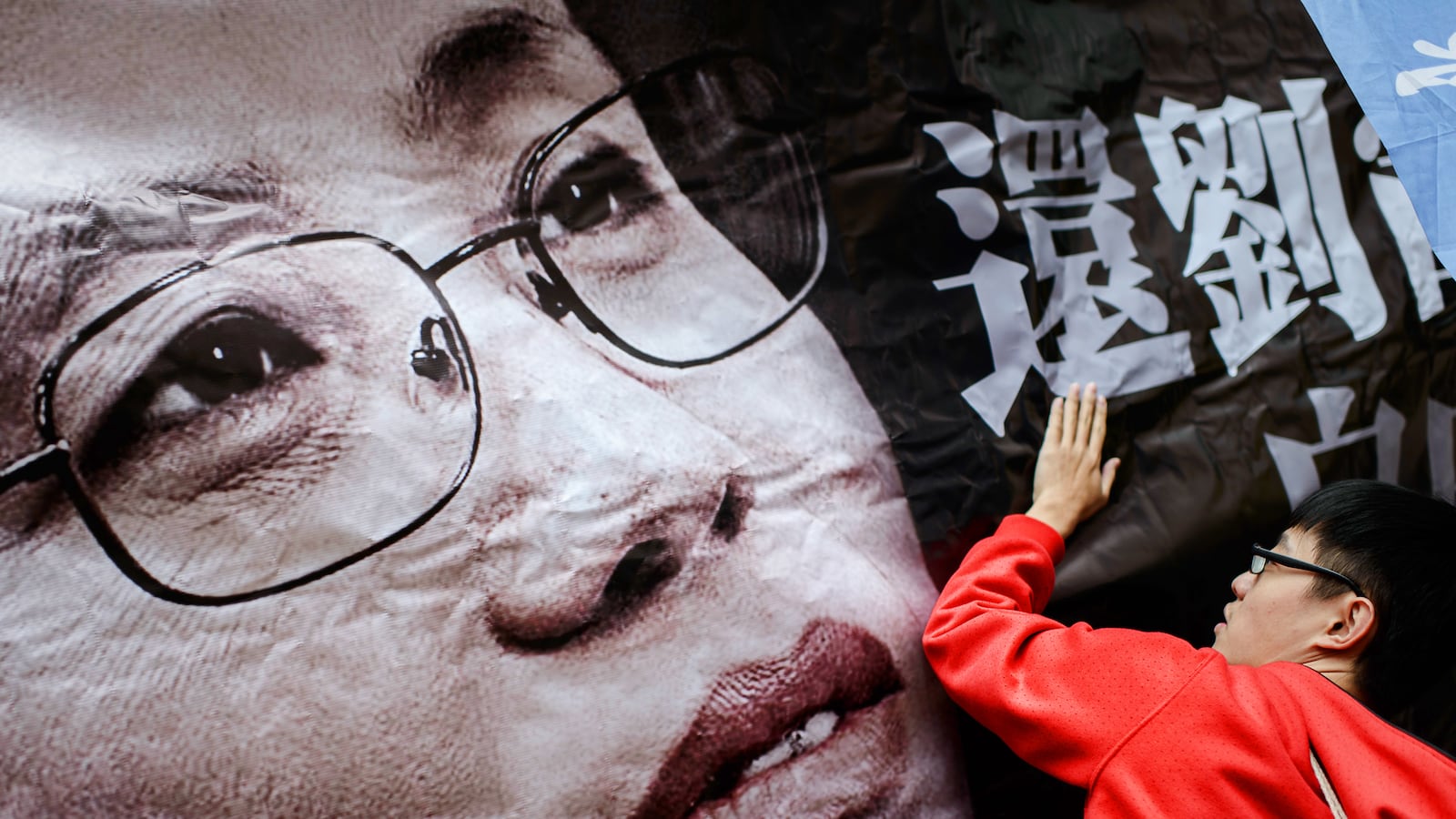It’s not every day that liberal Democratic Minority Leader Nancy Pelosi and conservative Republican Congressman Frank Wolf agree. But today they do and China is more than a little ticked off about it. On Friday, a bipartisan group of 14 members of the U.S. Congress sent a letter to the mayor of Washington, D.C., and the City Council, asking them to rename the street directly in front of the Chinese embassy after Liu Xiaobo, China’s imprisoned Nobel Peace Prize winner.

The letter reads in part:
“By renaming the street in front of the Chinese Embassy after Dr. Liu, we would send a clear and powerful message that the United States remains vigilant and resolute in its commitment to safeguard human rights around the globe. The timing is auspicious for such a move with the Tiananmen anniversary fast approaching. This modest effort would undoubtedly give hope to the Chinese people who continue to yearn for basic human rights and representative democracy and would remind their oppressors that they are in fact on the wrong side of history.”
Over the past month, Wolf’s office has worked tirelessly to recruit members of Congress from both parties. Veteran Republicans joined with freshmen Democrats like Congressman Patrick Murphy, the youngest member of the House. It was a show of true bipartisan support for human rights defenders in the dark corners of the globe. At a time of deep cynicism about Congress, this moment stands out as one of unity.
The full list of signatories include Rep. Frank Wolf (R-Va.), Minority Leader Nancy Pelosi (D-Calif.), Del. Eleanor Holmes (D-D.C.), Reps. Elijah Cummings (D-Md.), Christopher Smith (R-N.J.), Gerald E. Connolly (D-Va.), Ileana Ros-Lehtinen (R-Fla.) , James McGovern (D-Mass.), Chris Van Hollen (D-Md.); Kerry Bentivolio (R-Mich.), Randy Hultgren (R-Ill.), Patrick Murphy (D-Fla.), and Robert Pittenger (R-N.C.).
Predictably, the Chinese government lashed out and called the idea “disrespectful” and “provocative.” Funny, I think it’s disrespectful to keep over a billion people under dictatorship and provocative to jail human rights activists. But maybe we just have different definitions.
Last November, Advancing Human Rights launched “Dissident Squared” to encourage policy-makers around the world to rename the streets in front of the embassies of dictatorships after political prisoners. Every time the representatives of tyranny walk outside of their offices, they should be confronted with the faces and names of those whose freedom they deny. Dissidents languishing in prison must know that they are not forgotten.
There is precedent for such action. In 1984, the U.S. Congress renamed the street in front of the Soviet embassy, “No. 1 Andrei Sakharov Plaza,” in support of the most famous Soviet scientist and human rights hero.
On January 16, former Soviet political prisoner Natan Sharansky raised the idea in Congress. Speaking before the Lantos Human Rights Commission, Sharansky said:
“[Advancing Human Rights] came up with a great idea. In the past, there was a square in Washington in front of the Soviet embassy which was called ‘Sakharov Plaza.’ So each time they had to write something at the Soviet embassy, they had to mention Sakharov. Why not do it in front the Iranian embassy [and] in front of every embassy of every dictatorship in the world? To name the streets in America and other free countries of the world. And that will be the best reminder that the world cares, that the world remembers. And that we will not permit …[dissidents to] disappear.”
Co-chairman Wolf immediately seized upon the idea. “That was really powerful,” he said. “If we can get a list of five embassies, we can have [Nabil] Rajab Square in front of the Bahraini embassy and we’ll do it in front of the Chinese embassy. We’ll ask the D.C. City Council to do this. But that’s a great idea and we will do it and get those letters off.”
Last week, Congressman Wolf came true on his promise. Shortly after receiving the letter, the Mayor’s office relayed that they are reviewing the request. D.C. Council Chairman Phil Mendelson echoed, “Obviously, a letter signed by a number of members of the House is something we want to take seriously.”
In explaining why he freed Natan Sharansky from prison after nine years, former Soviet leader Mikhail Gorbachev said, “It wasn’t worth the international price we paid.” The West can dramatically change the cost-benefit analysis of today’s dictatorships too. The free world can play a key role in convincing dictators in Iran, Syria, China, Saudi Arabia, and Russia that jailing human rights activists simply isn’t worth the international price.
This is both the moral and pragmatic choice. When states like China and Iran no longer fear their own bloggers, journalists and activists, then we will no longer have any reason to fear those regimes.




